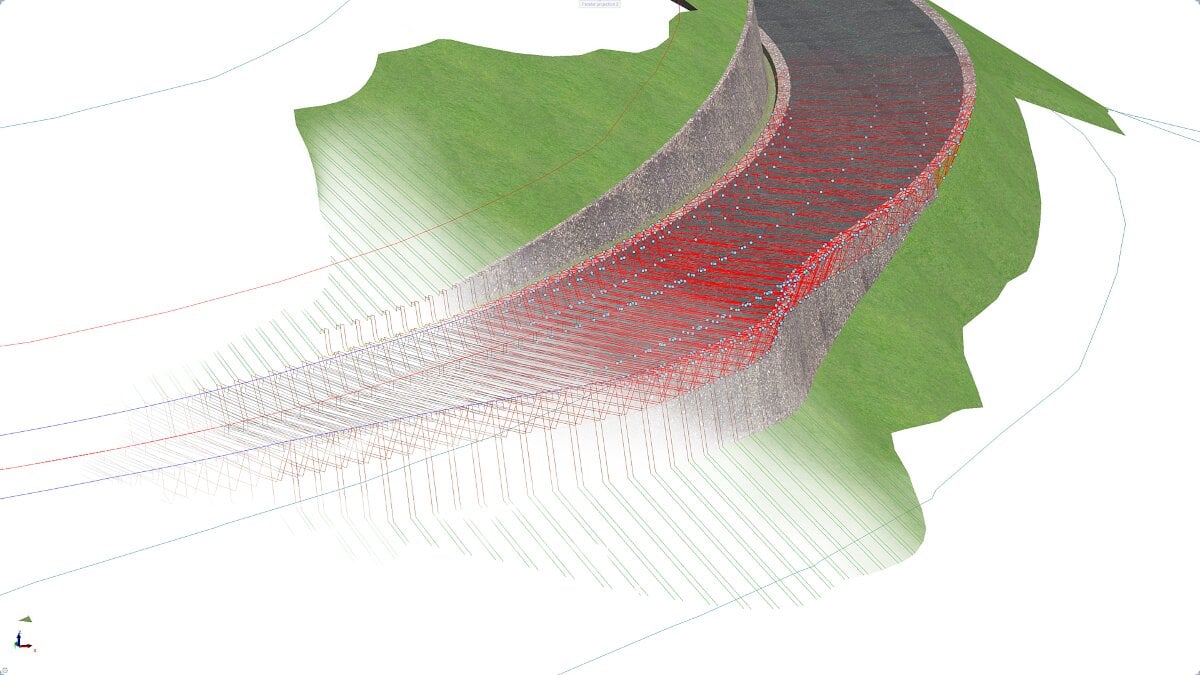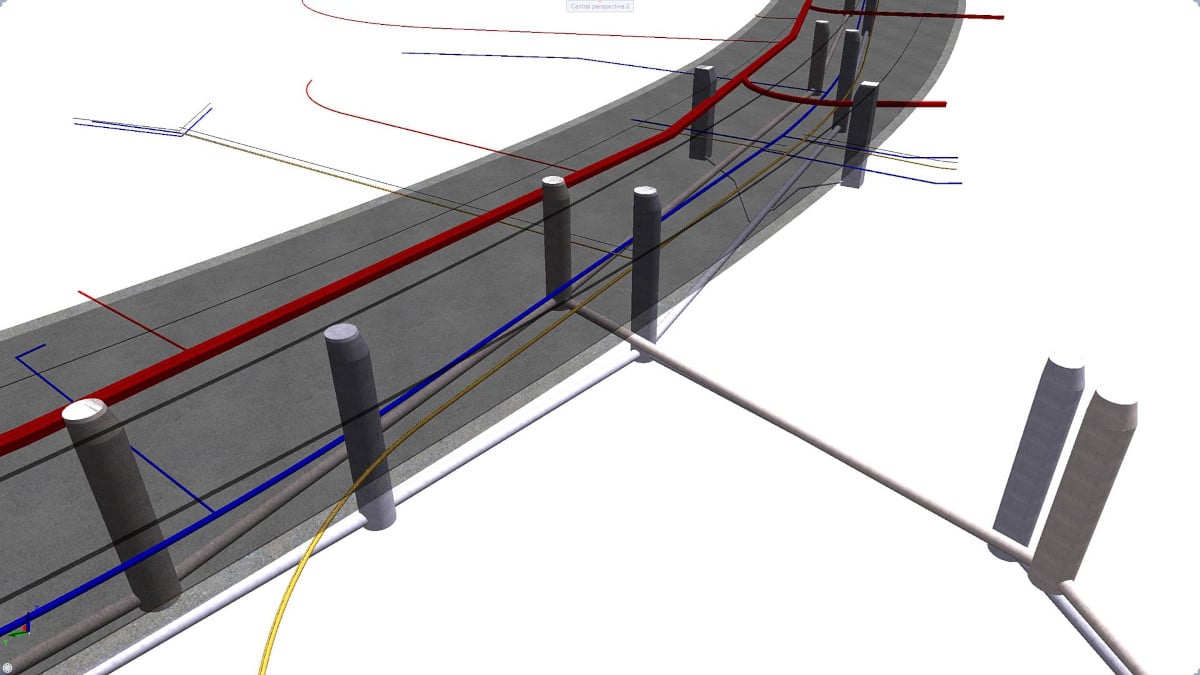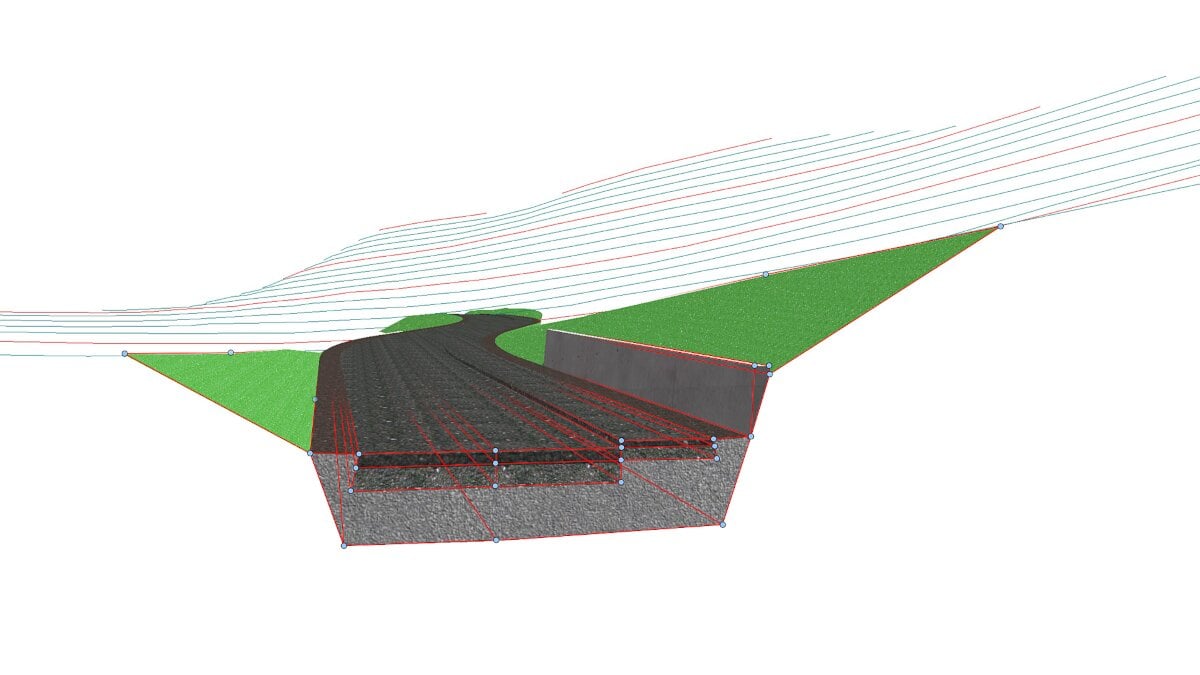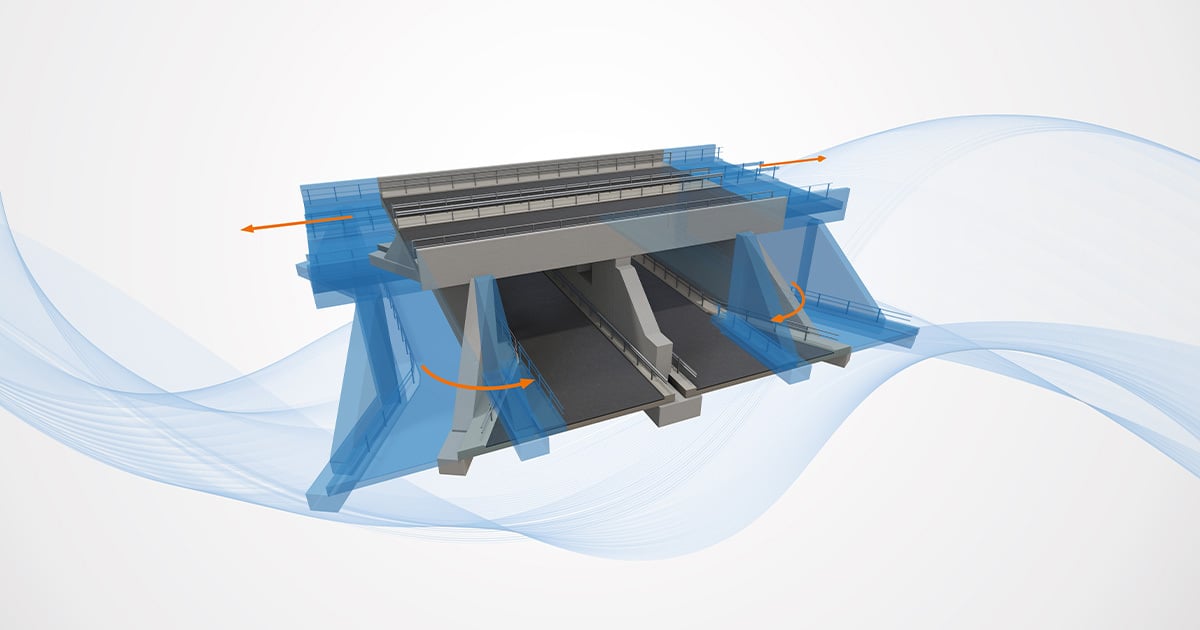In today’s rapidly evolving world, the design and construction of roads, highways, and transportation infrastructure requires innovative approaches to enhance efficiency, collaboration, and sustainability. One such approach that has gained significant traction is the implementation of Building Information Modeling (BIM) for roads design. BIM offers a comprehensive framework that integrates various aspects of project planning, design, analysis, and management, revolutionizing the way transportation projects are conceived and executed. To support this, ALLPLAN has introduced a series of webinars, “Detailed Design of Roads in a BIM Environment”, exploring the key principles, methodologies, and benefits associated with this transformative approach.
Terrain and Axes for Road Design
Road axes are a crucial component of road design. This first webinar covers how to establish terrain model and road axes, as well as the input of parametric road cross-sections. Considerations such as avoiding encroachments on adjacent private properties or critical services and incorporating cadastral boundaries when available are also covered. Furthermore, sewer and pipe planning for road drainage within the Allplan AEC software is discussed. Participants will learn about the tools and techniques used to design effective drainage systems, ensuring proper water management for road infrastructure.
The focus of this webinar is helping engineers enhance their proficiency in utilizing Allplan AEC for detailed road design. They will gain valuable knowledge and insights into the design and modeling process, enabling them to optimize their road designs and improve project outcomes.
 © ALLPLAN
© ALLPLAN
Exploring Detailing and Model Validation in a BIM Environment
The second webinar in the series focuses on the critical aspects of detailing and model validation using Allplan AEC. This webinar equips infrastructure engineers with essential techniques to enhance their road design workflows, ensure compliance with planning criteria, and improve the overall quality of their road design projects.
The session covers a range of topics, including road detailing techniques to accurately represent road elements, axis takeover to align road geometry with constraint points, and incorporating limits and blockers to comply with regulations. Participants also gain insights into the importance of model validation through automated and visual geometry inspections, ensuring error detection and correction. It also highlights the use of RVS 03.03.23, a country standard check specific to Austria, and showcases surface creation techniques.
 © ALLPLAN
© ALLPLAN
Optimizing Data Output and IFC Model Export
The third and final webinar of the series focuses on data output and IFC model export. It offers an invaluable opportunity for highway engineers to explore a template-based concept for detailed output of plans and reports using Allplan AEC. It will be held live online on 20th June, but will also be available to watch on demand afterwards.
Participants will discover how to generate data reports, cross-section drawings, longitudinal profile plans, and site plans directly from the current model status. The webinar will showcase the templated approach for improved plan output and demonstrate the possibility of exporting the BIM model in the IFC format. Moreover, attendees will learn how to assign attributes to the road model, enabling model-based project collaboration and communication through the upload process. By attending this webinar, engineers will gain practical knowledge and insights to optimize their road design projects and enhance their efficiency.
 © ALLPLAN
© ALLPLAN
Raise Your Level with ALLPLAN
The “Detailed Design of Roads in a BIM Environment” webinar series provides transportation infrastructure engineers with valuable insights and practical knowledge. From information management and interoperability to detailing, model validation, and data output, participants will gain essential skills to enhance their road design workflows. By leveraging BIM technology and methodologies, engineers can improve collaboration, efficiency, and overall project quality. Continuously exploring the possibilities of BIM and emerging technologies will empower engineers to drive positive change in road design, making a lasting impact on infrastructure development.







